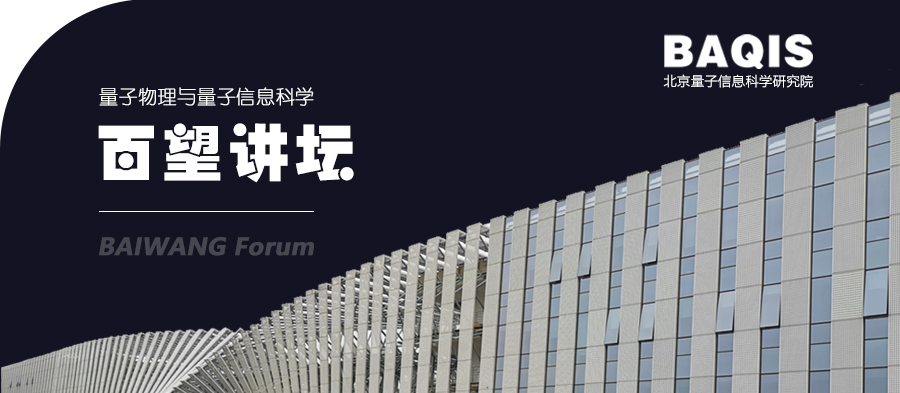Baiwang Forum 57: Chiral quantum optics using quantum dots
2024/02/27

Date and Time: 27-Feb-2024(Tuesday)4pm (Beijing time)
Speaker: Prof. Mark Fox, University of Sheffield,UK
Host: Zhiliang Yuan, BAQIS
Title: Chiral quantum optics using quantum dots
About the Speaker:
Prof. Mark Fox received his MA and Doctor’s degrees in physics from the University of Oxford and is now Professor of Optical Physics at the University of Sheffield. He is a Fellow of Optica and the Institute of Physics. He has more than 250 publications covering a wide range of topics in semiconductor photonics and quantum optics. In recent years he has been focussing his research on III-V semiconductor quantum dots, with a special interest in their application in quantum technologies. He is the author of two textbooks in the Oxford Masters Series in Physics: Optical Properties of Solids (2nd Edition 2010) and Quantum Optics: an Introduction (2006).
Abstract:
In this seminar, I will review progress towards implementing chiral quantum photonics in GaAs nano-photonic waveguides. Chiral coupling occurs when a semiconductor quantum dot (QD) is positioned close to a C-Point (chiral point) of the waveguide. This causes a strong dependence of the propagation direction on the circular polarization of the optical mode, with spin up and spin down exciton spins coupling to the left and right propagation directions respectively. This provides a mechanism by which a QD can impart a π phase shift depending on the spin of a charge carrier within the dot, forming the building block for chip-based spin quantum networks.
Early work in our group focussed on nanobeam waveguides where we observed spin-dependent directional photoluminescence and initialization [1, 2] and deduced a spin-dependent phase shift in transmission of around 0.1π [3]. We are now working to increase the phase shift by using more sophisticated waveguide designs based on topological and glide-plane photonic crystals. Strong chirality has been observed in the topological designs [4], while the glide planes also give a large Purcell enhancement [5]. Detailed statistical analysis and simulations suggest that the glide-plane designs offer the best route towards obtaining both high chirality and strong Purcell enhancement, as required to achieve the full π phase shift [6].
References
1. Coles, R.J. et al., Nature Communications, 7, 11183 (2016).
2. Coles, R.J. et al., Phys. Rev. B, 95, 121401(R) (2017).
3. Hurst, D.L. et al., Nano Letters, 18, 5475 (2018).
4. Jalali Mehrabad, M., et al, Optica, 7, 1690 (2020).
5. Siampour, H. et al., NPJ Quantum Information, 9, 15 (2023)
6. Martin, N. et al., arXiv:2305.11082
 中文
中文 Email
Email QCloud
QCloud Log in
Log in
